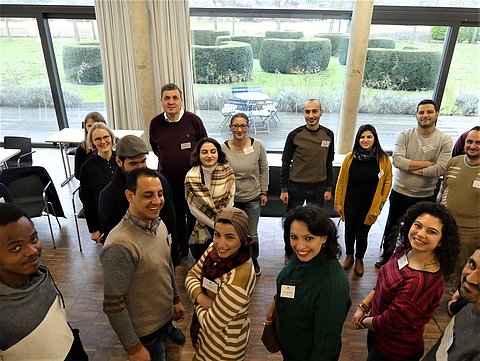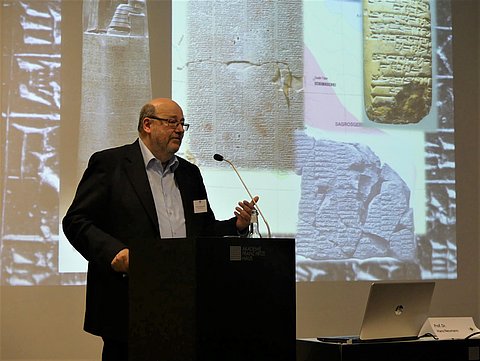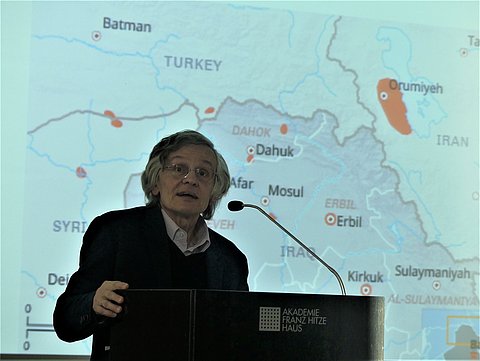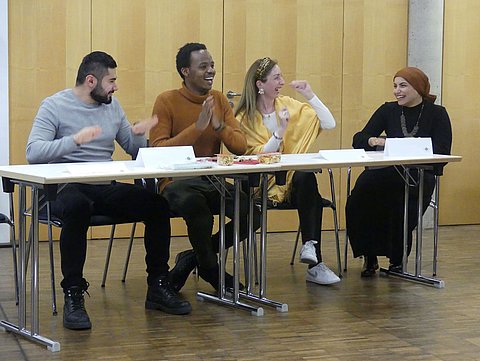According to Goethe’s dictum, 22 scholars met in the Franz-Hitze-Haus in Münster from February 10th to 13th in order to become familiar with the “Ancient Languages and Cultures of the Middle East”. The regional seminar of the Middle East Department brought together people from eleven different countries: 14 participants came from countries of the Middle East, namely from Egypt, Syria, Jordan, Palestine and Iraq; eight from other parts of the world.
One focus of this cooperation seminar, which was led by Dr Christian Müller (Franz-Hitze-Haus), Dr Nora Kalbarczyk and Santra Sontowski, and spiritually accompanied by Fr Prof Dr Thomas Eggensperger OP, was to find out which aspects from these long past times still affect us in our present day.
The content-related part of the seminar began with the workshop “The Ancient Orient in my Life”, in which the participants reflected in changing group compositions about what they associate with the various keywords of this complex of topics, which narratives, languages and countries in particular come to their mind and how their respective country of origin is or can be related to it. The workshop was followed by presentations by Dyoniz Kindata from Tanzania on “The Literature of Ancient Mesopotamia – an Overview” and by Layth from Iraq on the languages of Mesopotamia. The workshop and presentations paved the way for the introductory lecture “History, Languages and Cultures of the Ancient Orient”, which was held by Prof Dr Hans Neumann (Ancient Oriental Studies, University of Münster). After a definition of the terms, a historical, cultural and linguistic-historical overview followed – starting from the Sumerian city-states in the ancient Mesopotamia in the early third millennium BC to the Achaemenid Empire in the 4th century BC.
The era of the Ancient Near East was explored in depth and illuminated from various angles during a guided tour of the Archaeological Museum in Münster. During the city tour through Münster, the participants were taken into another era and another region – the visit of the cathedral and the peace hall was certainly a special highlight.
In his lecture “The Ancient Near East in Today’s Middle East: Influences on Language, Culture and Religious Traditions” Prof. Dr. Dr. Manfred Hutter (Comparative Religious Studies, University of Bonn) identified references of the Ancient Near East to the present. Be it the various inventions (such as the seed plow) that have contributed to civilization, or linguistic expressions of Sumerian or Akkadian that have been passed down to the present day, be it certain myths and narratives that have found their way into the collective memory of some cultures and countries and are sometimes activated and misused for political purposes – they all form points of reference for an objective or identity-forming reference. The participants were able to draw on the aspect of the construction or even suppression of certain identities in a special way – particularly, when it comes to identities linked to a certain language.
The social highlight of the seminar was the final evening organized by three scholars, which turned the participants into players of an exciting and fun quiz. The seminar was spiritually rounded off by the international service held in the Edith Stein Chapel.
In conclusion, it can be said that this seminar has broadened the participants’ perspectives in various ways – and certainly made many new friendships.







